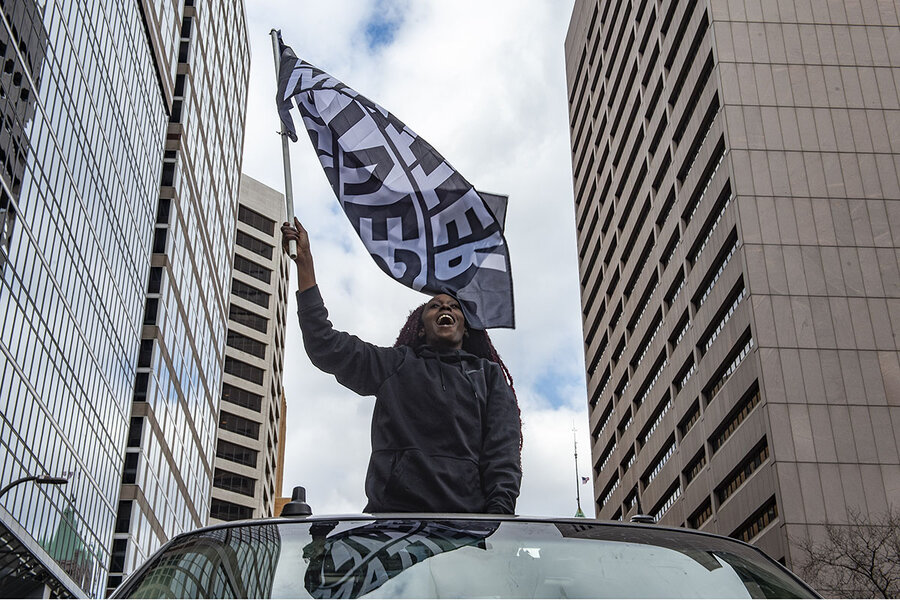
For much of the country, it has felt like racism itself was on trial in Minneapolis. What does the verdict say about where America goes from here?
There have been other moments of police violence against Black men captured on video over the past few years.
As part of a new moment in human history when nearly everyone is equipped with video-recording phones, witnesses – and sometimes even the mandated clip-on cameras of police officers themselves – have captured the violent deaths of men such as Eric Garner, Philando Castile, Rayshard Brooks.
“Say their names” became a rallying cry, and such videos, especially, helped launch Black Lives Matter, organized and led by a younger generation of Black Americans, who demanded the nation address its history of racial injustice with mass protests not seen since the civil rights movement of the 1950s and 1960s.
The name George Floyd, however, resonated globally, and from the start there appeared to be something different about the impact of the 9 1/2 minutes of footage that captured his murder at the corner of 38th and Chicago in Minneapolis.
“Just a human, just a man, lying on the pavement being pressed upon, desperately crying out,” said prosecution team member Steve Schleicher in his final arguments Monday. “A grown man, crying out for his mother. A human being.”
On Tuesday, a jury issued a verdict all too rare in American history, convicting former Minneapolis police officer Derek Chauvin on all counts, including murder.
But as the Monitor reported Tuesday, despite the honking car horns and shouts of solidarity outside the Hennepin County Courthouse, the mood could not be considered happy.










